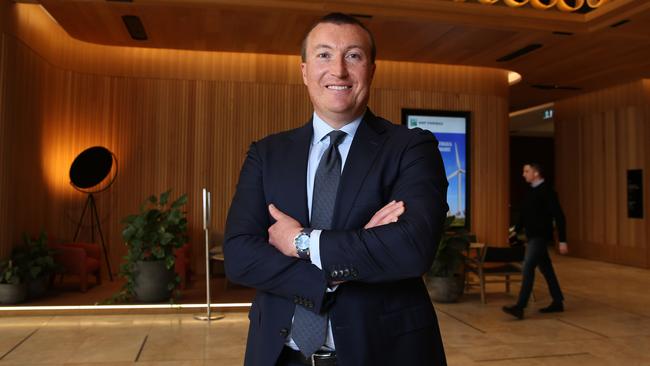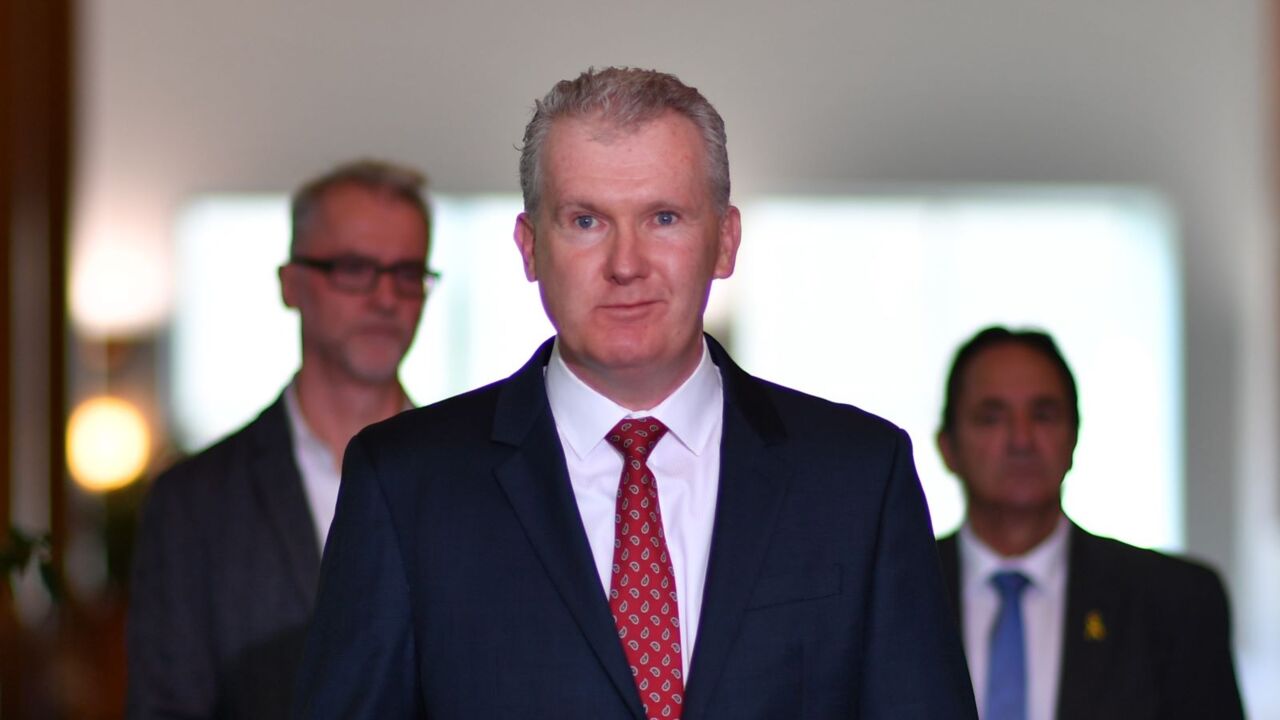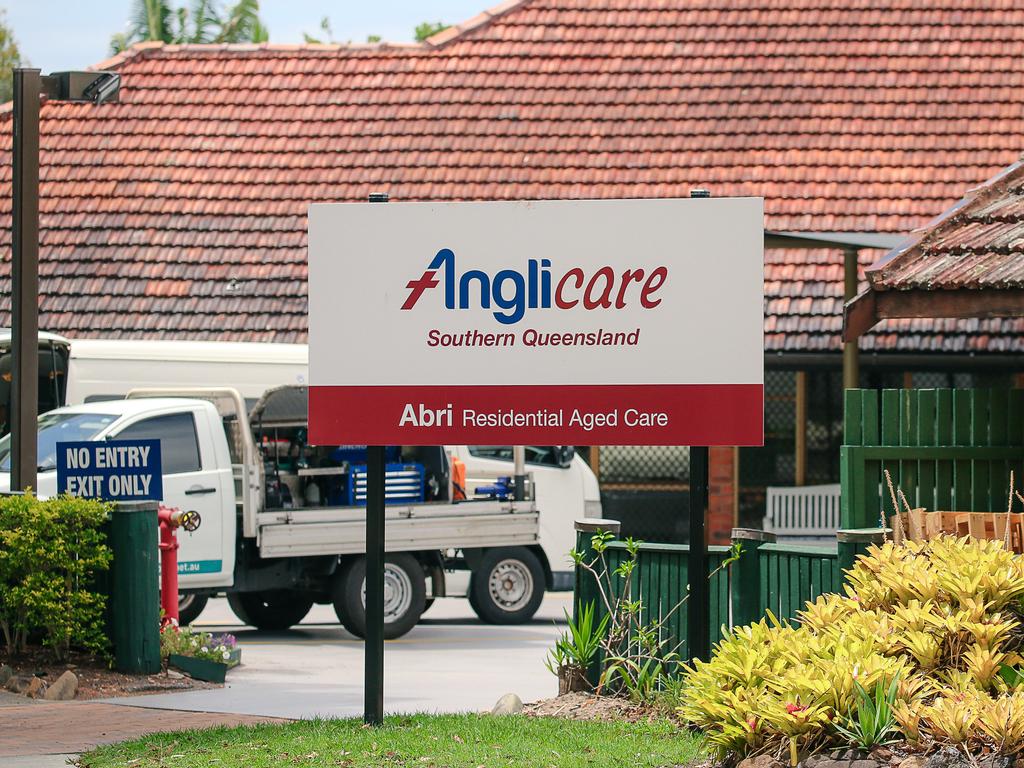Businesses unite as they warn of ‘economic storm’
Large and small businesses unite to warn Labor’s the next tranche of proposed workplace reforms will ‘bring self-inflicted damage to our economy’.

Large and small businesses have united to warn the “economic storm” facing private enterprise is being made worse by Anthony Albanese’s industrial relations agenda, as confidence among bosses sinks to its lowest levels in more than a decade.
Business Council of Australia chief executive Bran Black and Council of Small Business Organisations Australia chief executive Luke Achterstraat have declared the government’s next tranche of proposed workplace reforms would “bring self-inflicted damage to our economy at a time when we can least afford it, creating ripple effects for all”.
The groups are asking Workplace Relations Minister Tony Burke to consider whether the reforms to casual worker rules and gig economy regulations would “leave all Australians worse off”.
“The government’s radical workplace relations agenda will make it harder and more expensive to run a business for every enterprise in Australia — small, medium or large,” Mr Black and Mr Achterstraat wrote in The Australian.
“That’s going to make our dismal productivity growth worse and the next generation will be left to pay the bill of lower living standards. “Whether you’re a small local business trying to work through rostering, or a larger business looking to hire and grow — it’s about to get harder, riskier and more expensive to do so.”
The pleas from business come as the economy is set to dominate federal politics this week, with public hearings to be held into the government’s industrial relations proposals while Labor MPs are urging the Prime Minister to act on cost-of-living concerns. Labor MPs have told The Australian they will push for Mr Albanese to extend electricity bill rebates beyond their scheduled end on June 30 and ask for them to be expanded to include support for working families as well as concession card holders.
They will also push for the government to provide rebates for more household bills, with one MP suggesting the government could cover the cost of property rates through direct payments to councils.
Another MP suggested there should be a cap on doctors fees, while there is widespread belief within caucus the government should act on the profits of the major supermarkets.
Labor MPs will push for the cost-of-living measures in a caucus meeting in Canberra this week, ahead of a major speech Mr Albanese will deliver to the National Press Club on Thursday. Labor MP for Lingiari in the NT, Marion Scrymgour, told The Australian that it would be “really good to look at food security or cost of living in regional and remote communities” and canvassed the prospect of offering tax breaks for workers as an incentive to fill critical shortages in the bush.

Ms Scrymgour warned that places like Katherine, Tennant Creek and Alice Springs were often forgotten about but that measures to improve “liveability” could help to attract people, but said this would need to involve an examination of “tax incentives or subsidies.”
“A lot of these things aren’t considered in the remote context,” she said. “If we look at the depletion of the workforce (in) health, education, the care industry, we can’t get people to these remote communities.”
With business leaders warning the government’s workplace reforms were exacerbating their challenges, the annual Ai Group chief executive survey showed optimism for the year ahead among bosses was at its lowest level since the end of the mining boom. The survey of 320 chief executives across the manufacturing, construction, technology and logistics sectors showed 40 per cent expected business conditions to be weaker in 2024 than last year, while only 27 per cent expected an improvement.
The CEOs expect growth in employment and the economy to be low, with supply-side constraints and weakening consumer demand the biggest concerns. Nearly 80 per cent of bosses expect their costs to be higher next year, with 57 per cent planning on passing on their increased costs by raising their sales prices. Eighty-seven per cent of CEOs surveyed expected to be impacted by staff shortages.
Ai Group chief executive Innes Willox said industry leaders were concerned about the impacts of “inflation, slowing demand and geopolitical uncertainty”.

“Expectations for 2024 are relatively weak,” Mr Willox said. “Investment plans for 2024 are attuned to these modest economic expectations. Improving productivity is a core theme, with business process improvement and staff training top of the investment priority list for 2024.”
The Albanese government’s third tranche of IR reforms will be debated in the Senate from next month. The reforms will make it easier for casual workers to convert to permanent employment and set minimum workplace standards for gig workers.
Mr Burke said gig economy employers should be required to observe minimum pay and conditions for its workforce.
“We need to have minimum standards that are fit for purpose to make sure Australia doesn’t become a nation where you have to rely on tips to survive,” Mr Burke said.
“The casuals changes make no difference to anyone who wants to remain a casual. But there are a small number of casuals who are being rostered identically to a permanent worker who want some job security.
“It’s completely reasonable to give these workers a right to convert. Your bills aren’t casual. Where conversion can be easily done it should an available option.”







To join the conversation, please log in. Don't have an account? Register
Join the conversation, you are commenting as Logout